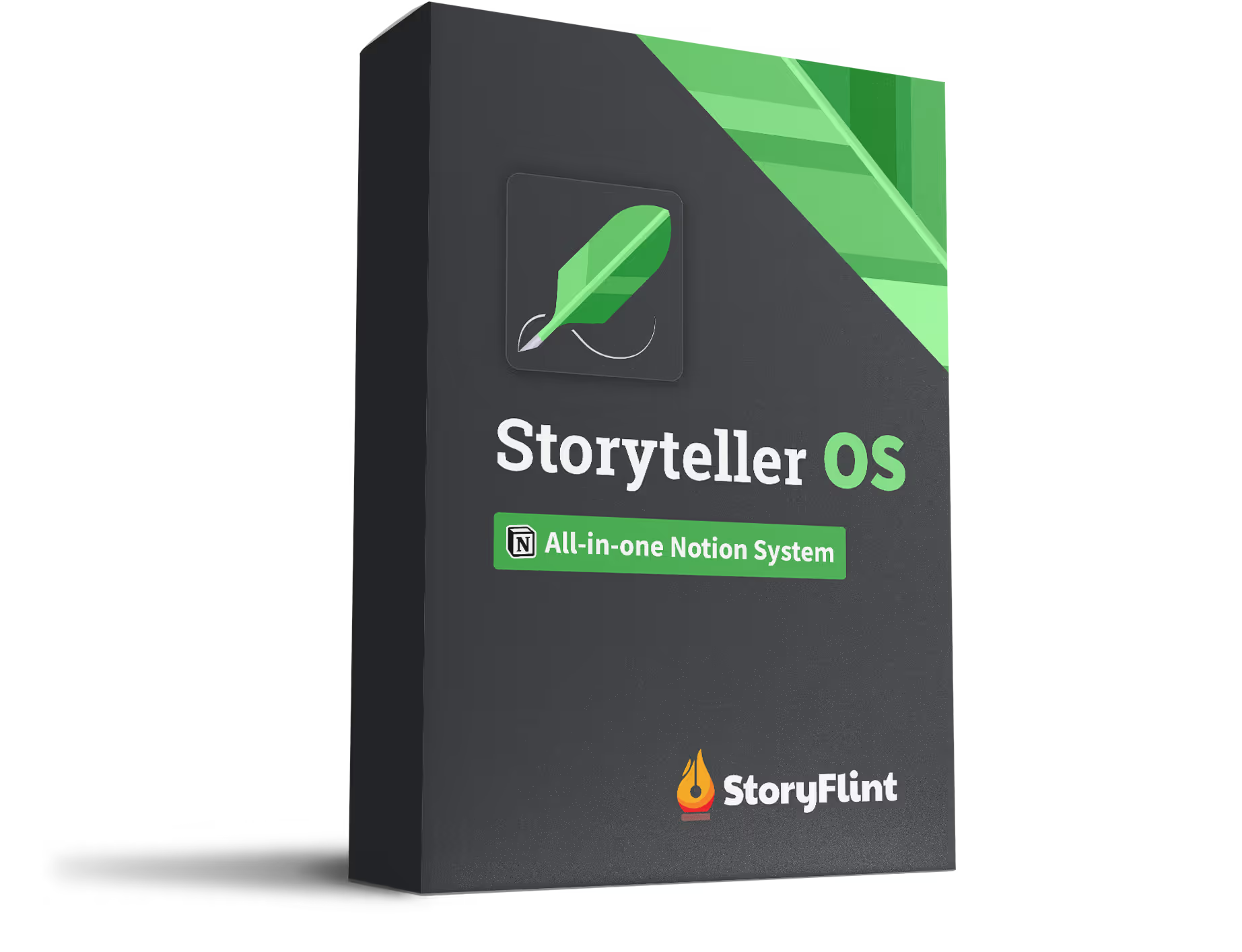Too many mentors in stories feel like drive-thru advice machines. They roll up, hand out a fortune-cookie quote, then vanish until the hero gets in trouble again.
That might move the plot along, but it won’t make your audience remember them. If you want a mentor who sticks—someone who your audience quotes, debates, and maybe even misses when they’re gone—you’ve got to give them depth, flaws, and a reason for existing beyond “the hero needed help.”
Why Mentors Matter More Than You Think
Mentor characters are more than tutors with good posture. They represent the truth of your story—the big idea your hero needs to face. They’re the guide who challenges the hero’s bad beliefs and offers a glimpse of the bigger picture.
When done right, mentors are the emotional backbone of a story. They spark reflection, growth, and sometimes heartbreak. When done wrong, they feel like that professor who just read the textbook at you.
The Core Job of a Mentor
K.M. Weiland points out that a mentor’s role is revealing the thematic truth. That’s not a fancy way of saying “give a lecture.” It means the mentor embodies the core lesson of the story. The hero may resist it, misinterpret it, or flat-out reject it, but it’s the mentor who sets it in motion.
Look at Uncle Iroh in Avatar: The Last Airbender. He doesn’t force Zuko to change. He simply shows kindness and wisdom until Zuko starts to see the cracks in his own worldview.
Forget the Cookie Cutter
Don’t build characters as archetype placeholders. Mentors shouldn’t exist only because “the hero’s journey says so.” They should have lives of their own.
Ask yourself: What would this character be doing if the protagonist never appeared? What keeps them awake at night? What would they fight to protect?
That’s why Gandalf works so well. Even when he’s not with the Fellowship, you know he’s doing something important. He’s not just a story prop; he’s a full person who happens to be mentoring.
Give Them Flaws (Real Ones)
Perfect mentors are dull. Give them quirks, weaknesses, and mistakes.
Maybe your mentor has a drinking problem, a history of failure, or a tendency to speak in riddles that frustrate everyone. Flaws give your audience something to latch onto, and they give your protagonist a reason to challenge or even doubt them.
George R.R. Martin often writes mentors who are complicated, morally gray, and just as likely to screw up as they are to succeed. That’s why they feel real.
Dark Mentors and Dual Mentors
You can shake things up with these approaches:
- Dark Mentor: They hand out advice that’s both useful and dangerous. The hero has to decide what to accept and what to reject.
- Dual Mentor System: Split the teaching duties. One mentor focuses on skills, the other on philosophy or mindset. It creates richer conflict and avoids the “all-knowing sage” problem.
Avoid the Common Pitfalls
- The Wise Old Man Trope: Ditch the robe-and-staff cliché. Try a mentor who’s a sarcastic mechanic, a washed-up celebrity, or the grumpy coffee shop owner who knows too much.
- Info Dumps: Don’t make them lore-delivery machines. Reveal knowledge through action, conversation, and mistakes.
- Deus Ex Machina: The mentor shouldn’t swoop in to solve the climax. Their job is prep, not rescue.
- Flat Characters: If your mentor doesn’t have personal stakes, they’ll feel hollow. Give them goals, regrets, and a sense of agency.
How Famous Mentors Get It Right
- Uncle Iroh (Avatar): Shows wisdom through tea, kindness, and patience.
- Dumbledore (Harry Potter): Leaves gaps for Harry to figure things out on his own.
- Mr. Miyagi (The Karate Kid): Turns chores into lessons, revealing the purpose only after it matters.
- Gandalf (The Lord of the Rings): Pushes the Fellowship forward without doing the heavy lifting himself.
What they all share: they empower the hero to grow instead of carrying them.
Dialogue That Sticks
A mentor is only as memorable as what they say. The best mentor lines double as life advice your audience could quote outside the story.
Spielberg put it best: “The delicate balance of mentoring someone is not creating them in your own image, but giving them the opportunity to create themselves.”
If your mentor sounds like a motivational poster, rewrite it. Give them a distinct voice. Make their advice feel like wisdom earned through scars, not something printed on a mug.
Let Their Story Matter
Mentors shouldn’t just shape the hero, they should also be shaped by the relationship. Maybe they’re haunted by a failed student. Maybe they swore never to teach again but found themselves pulled back in. Maybe they learn just as much from the hero as the hero learns from them.
When your mentor has their own arc, they become unforgettable. Their presence matters to the story even outside the protagonist’s perspective.
(Need help fleshing one out? The Ultimate Character Builder makes it easy to create mentors with depth, flaws, and motivation.)
Modern Approaches: More Than Sages
Mentors don’t have to be inspirational fountains of wisdom. Try one of these angles:
- Reluctant Mentor: They don’t want the job, which creates natural conflict and tension.
- Flawed Teacher: They give wrong advice sometimes. That forces the hero to grow by questioning.
- Emotional Mentor vs. Skill Mentor: Split the load. Maybe one is good at tactics but useless with feelings.
- The Failed Mentor’s Return: A mentor who screwed up before but comes back to help later adds drama and payoff.
How to Use Mentor Archetypes Without Being Boring
Archetypes can be useful as starting points, just don’t stop there. The “wise old sage,” “gruff teacher,” or “reluctant coach” can work if you add unexpected details. Give them hobbies, inside jokes, or odd habits that make them feel real.
Your audience doesn’t want clichés. They want people who surprise them.
The Writer’s Struggle With Mentors
Here’s where most writers trip up: disorganization. You’ve got sticky notes with mentor dialogue, scraps of backstory in a Google Doc, and three different drafts of their arc scattered across your desktop. Then when you sit down to write, you’re overwhelmed.
Sound familiar? That’s why writers end up defaulting to generic mentors. They don’t have the mental bandwidth to sort through the mess.
Keeping your mentor’s details organized (backstory, flaws, motivations) saves you from writing cardboard cutouts. That’s exactly why tools like the Ultimate Character Builder exist. It takes the scattered mess and puts it in one neat, flexible place.
Examples From Famous Media (Deep Dive)
Let’s look closer at how four iconic mentors follow these principles:
- Iroh (Avatar): His role is less about fighting and more about challenging Zuko’s ideas of honor. His flaw? He once chased power himself. His growth? Choosing peace and kindness instead.
- Dumbledore (Harry Potter): His wisdom is paired with secrecy and manipulation. Harry must learn not only from his guidance but also from his mistakes.
- Mr. Miyagi (The Karate Kid): He uses indirect teaching. His “wax on, wax off” approach makes Daniel earn understanding instead of handing it to him. His flaw? Deep grief and trauma, which makes his lessons resonate.
- Gandalf (LOTR): He guides but doesn’t control. His absence in crucial moments forces the Fellowship to stand on their own. His personal stake? Preserving Middle-earth while resisting corruption.
Each of these mentors is memorable because they have flaws, stakes, and arcs of their own.
[.ai-prompt]Use this AI prompt to help you out:
"Give me 5 unique mentor character concepts, each with a flaw, a personal motivation unrelated to the protagonist, and a signature teaching method."[.ai-prompt]
Your Mentor Can Steal the Show—If You Let Them
The best mentors don’t just hand out advice like candy. They push, challenge, frustrate, and sometimes fail. They’re human. And that’s what makes them unforgettable.
If you put as much care into your mentor as you do your protagonist, you’ll end up with a story that feels deeper and more alive.
Want to keep building your cast with strong foundations? Check out my article on Character Archetypes. It’s the perfect companion piece for creating characters your audience won’t forget.




